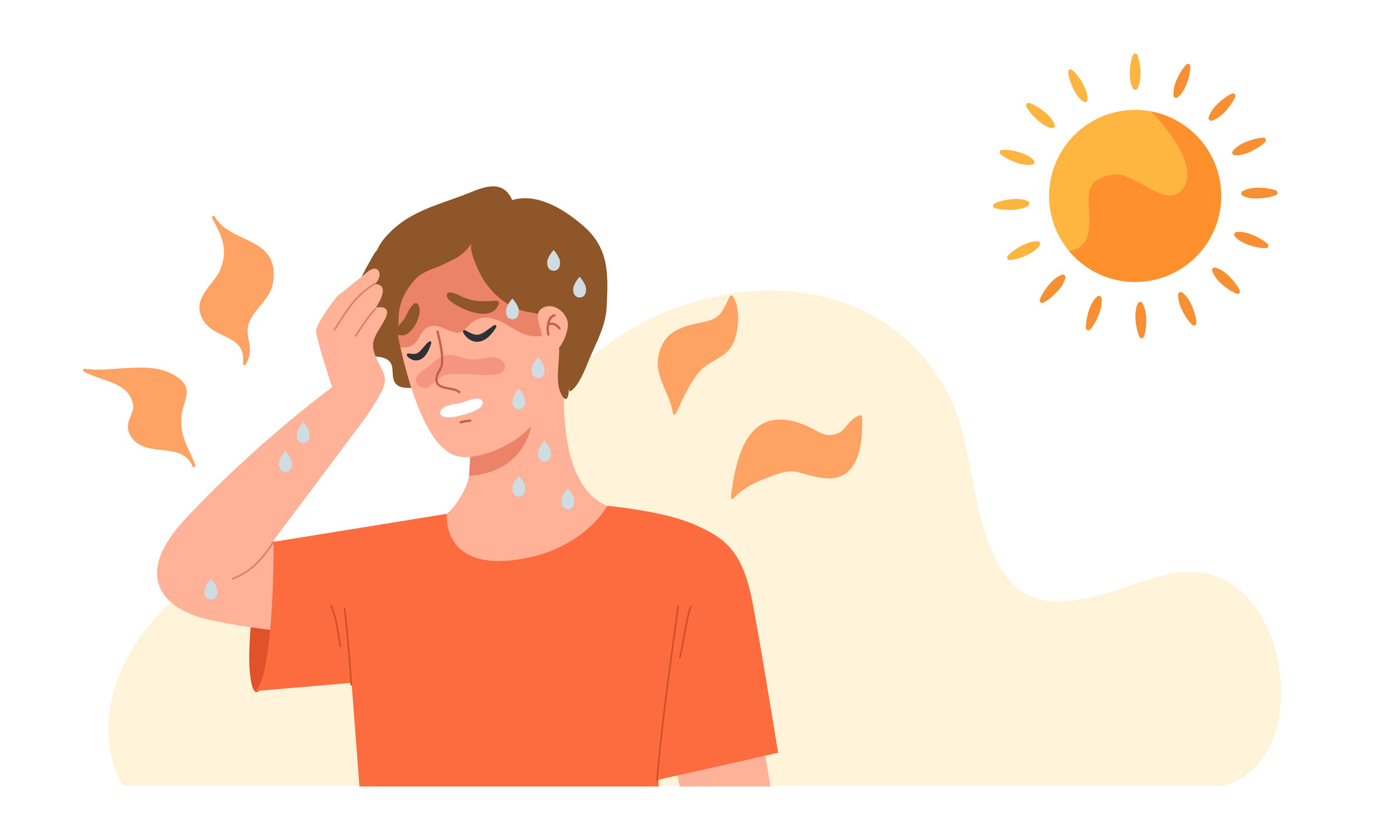
What to do if you understand the symptoms of heat stroke
 Lately, the maximum temperature has been touching or crossing 40 degrees in some parts of the country. It burns when going out in the sun. There is no comfort in sitting in the shade; Because the air is hot. Throat is getting dry due to thirst again and again. Children and the elderly are especially at risk at this time. In this severe heatstroke, the body's ability to regulate heat can be lost. Could be heatstroke. When the body temperature exceeds 105 degrees Fahrenheit, it is called heatstroke.
Lately, the maximum temperature has been touching or crossing 40 degrees in some parts of the country. It burns when going out in the sun. There is no comfort in sitting in the shade; Because the air is hot. Throat is getting dry due to thirst again and again. Children and the elderly are especially at risk at this time. In this severe heatstroke, the body's ability to regulate heat can be lost. Could be heatstroke. When the body temperature exceeds 105 degrees Fahrenheit, it is called heatstroke.
The temperature of the body is regulated by the blood under the instructions of the thermoregulatory center of our brain. If the body temperature rises for some reason, the blood vessels of the skin dilate and spread the excess heat to the environment. Body temperature is also regulated through sweating. But if you spend a lot of time in extremely hot and humid environment or work hard, the body's ability to regulate normal heat becomes useless. In this, the body temperature quickly exceeds the threshold, heatstroke occurs.
Becoming unconscious is the last stage of this problem. However, some symptoms appear before heatstroke occurs. Be careful when you see the symptoms. Heatstroke is preceded by muscle aches, weakness, chills, and extreme thirst. In the next stage, symptoms like rapid breathing, headache, dizziness, nausea, incoherent behavior, dizziness appear. In both these cases, body heat regulation is fine and the body sweats profusely. It is possible to avoid the final state of heatstroke if you are aware of this time. The risk of heatstroke can be reduced by taking quick action without neglecting it. If this is felt, the affected person should be quickly removed from the sun and kept in a relatively cool place. Leave the fan and loosen the clothes. The body should be wiped with a wet cloth. Water or saline should be fed little by little. Must be kept at rest.
When heatstroke occurs, the body temperature quickly rises above 105 degrees Fahrenheit. The skin becomes dry and red. The skin can become dry by stopping sweating. The patient breathes very rapidly, the pulse is weak and rapid. Blood pressure decreases. Convulsions, dizziness, abnormal behavior occur. Urine volume decreases and becomes yellow. At the very end the patient may go into shock.
Anyone working long hours in extreme heat and humidity can develop heatstroke. However, the risk of heatstroke increases in some cases, such as—
Children and the elderly are more prone to heat stroke as they have less ability to control heat.
Those who do manual labor in the hot sun during the day are at high risk of heatstroke, such as farmers, laborers, rickshaw pullers, day laborers, construction workers, etc.
Dehydration, is drinking less water, increases the risk of heatstroke. Excessive sweating removes water and minerals from the body.
Certain medications increase the risk of heatstroke, especially those taking drugs from the diuretic group.
How to be careful
In summer, as the amount of water is reduced through sweat, the body needs to be hydrated by drinking plenty of water. Orsaline should be mixed with water to compensate for electrolyte deficiency. Otherwise, mix 4 tablespoons of sugar and 1 teaspoon of salt in 1 liter of water and keep it in a bag. Keep drinking this water hour after hour. You can have fruit juice (lemon, bell, watermelon) along with water. However, it is better not to consume juice bought on the street. Kidney and blood pressure patients should drink water as advised by the doctor.
Wear light-colored, loose-fitting cotton clothes in summer. Free the body from tight clothing. Wear full-sleeved shirts or clothes that cover most of the body. Use soft fabric underwear, which will absorb sweat quickly and keep your body cool. When going out, definitely use umbrella, hat, sunglasses. Wash your hands and face with cold water every hour. You can keep wet tissue (wet wipe) with it. Use the right sunscreen for your skin type. Those with sensitive skin should avoid sunscreens with parabens or oxybenzone-like chemicals. Sunscreens containing ingredients like titanium dioxide or zinc oxide are beneficial for sensitive skin. These ingredients protect the skin from the heat of the sun. Apply at least 30 minutes before going out. If possible, apply once more after 2 hours.
Say no to fast food during summer. Because, the excess salt and oil in it will harm your body more in heat. Avoid taking open food from outside. Emphasize homemade light meals. To prevent sweat from accumulating on the body in extreme heat, if possible, wipe the body with a handkerchief lightly soaked in water. Bathe multiple times at home. Don't sit in AC suddenly from outside or don't go out of AC suddenly and get overheated. Do not drink tea, coffee, cold drinks in summer. Do not stand in the hot sun for a long time.
Colonel (Retd.) Professor Dr. Jehad Khan, Medicine Specialist and Senior Cardiologist, Ibn Sina Cardiac Centre, Dhanmondi, Dhaka.
Publisher : Mustakim Nibir
© All rights reserved © The Times Of Dhaka